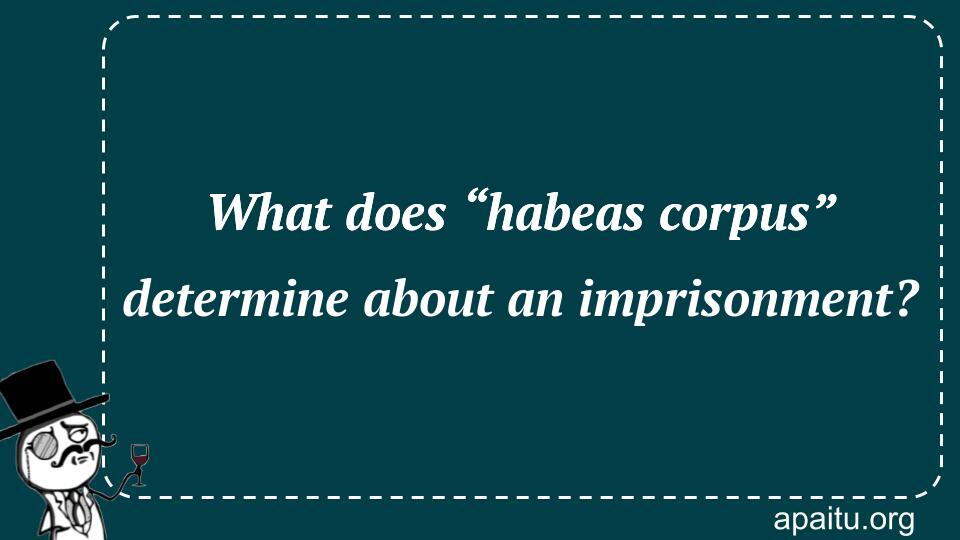Question
Here is the question : WHAT DOES “HABEAS CORPUS” DETERMINE ABOUT AN IMPRISONMENT?
Option
Here is the option for the question :
- Length
- Severity
- Type
- Validity
The Answer:
And, the answer for the the question is :
Explanation:
The writ of habeas corpus decides whether or not an individual is being held in custody in accordance with the law. It can be traced all the way back to the signing of the Magna Carta in 1215 CE. It is stated in the 39th clause of that declaration that ‘No man should be detained or imprisoned…except by the legitimate judgment of his peers and by the law of the land.’ In its modern sense, this term refers to the process by which a person who has been incarcerated can petition a court to overturn their conviction and release them from jail.

Habeas corpus is a legal term that refers to the right of an individual who is imprisoned or detained to challenge the legality of their detention. The term habeas corpus is Latin for “you shall have the body,” and it refers to the right of an individual to have their physical body brought before a court or judge.
The writ of habeas corpus is a legal order that requires a person who is being detained to be brought before a court or judge. The purpose of the writ is to determine the validity of the detention and to ensure that the individual’s rights are being protected.
Habeas corpus is a fundamental principle of the legal system in many countries, including the United States. The right to habeas corpus is enshrined in the U.S. Constitution, and it is considered a cornerstone of individual liberty and due process.
When a person files a petition for habeas corpus, they are essentially asking a court to review the legality of their detention. The court will review the circumstances of the detention and determine whether it is legal and whether the individual’s rights are being protected.
If the court determines that the detention is illegal or that the individual’s rights are being violated, it may order the individual’s release or it may order the conditions of the detention to be changed. The court may also order an investigation into the circumstances of the detention or may order a trial to be held to determine the validity of the charges against the individual.
habeas corpus is a legal principle that allows an individual who is imprisoned or detained to challenge the legality of their detention. The writ of habeas corpus is a legal order that requires a person who is being detained to be brought before a court or judge. Habeas corpus is a fundamental principle of the legal system in many countries, including the United States, and it is considered a cornerstone of individual liberty and due process. When a person files a petition for habeas corpus, they are essentially asking a court to review the legality of their detention and to ensure that their rights are being protected.